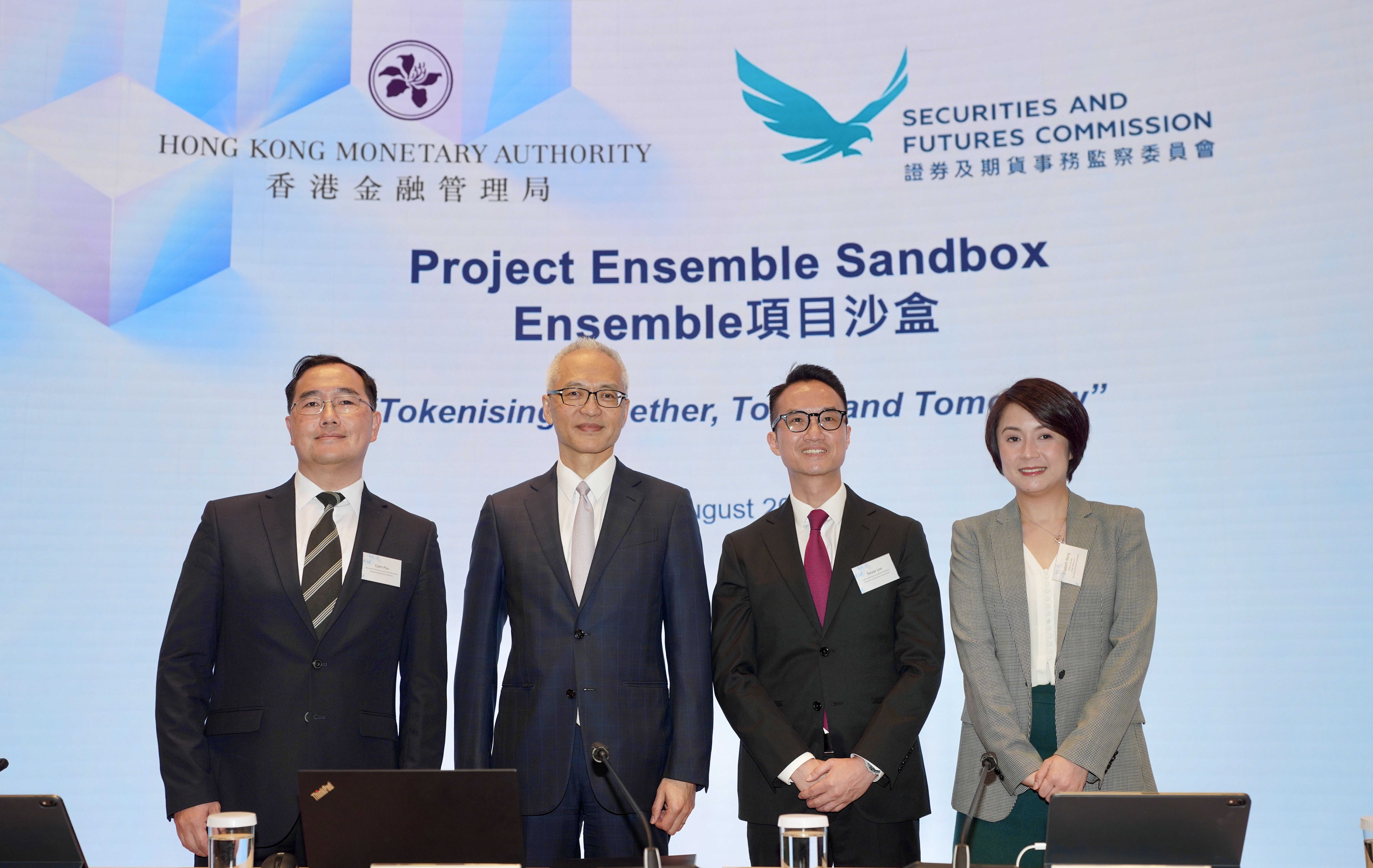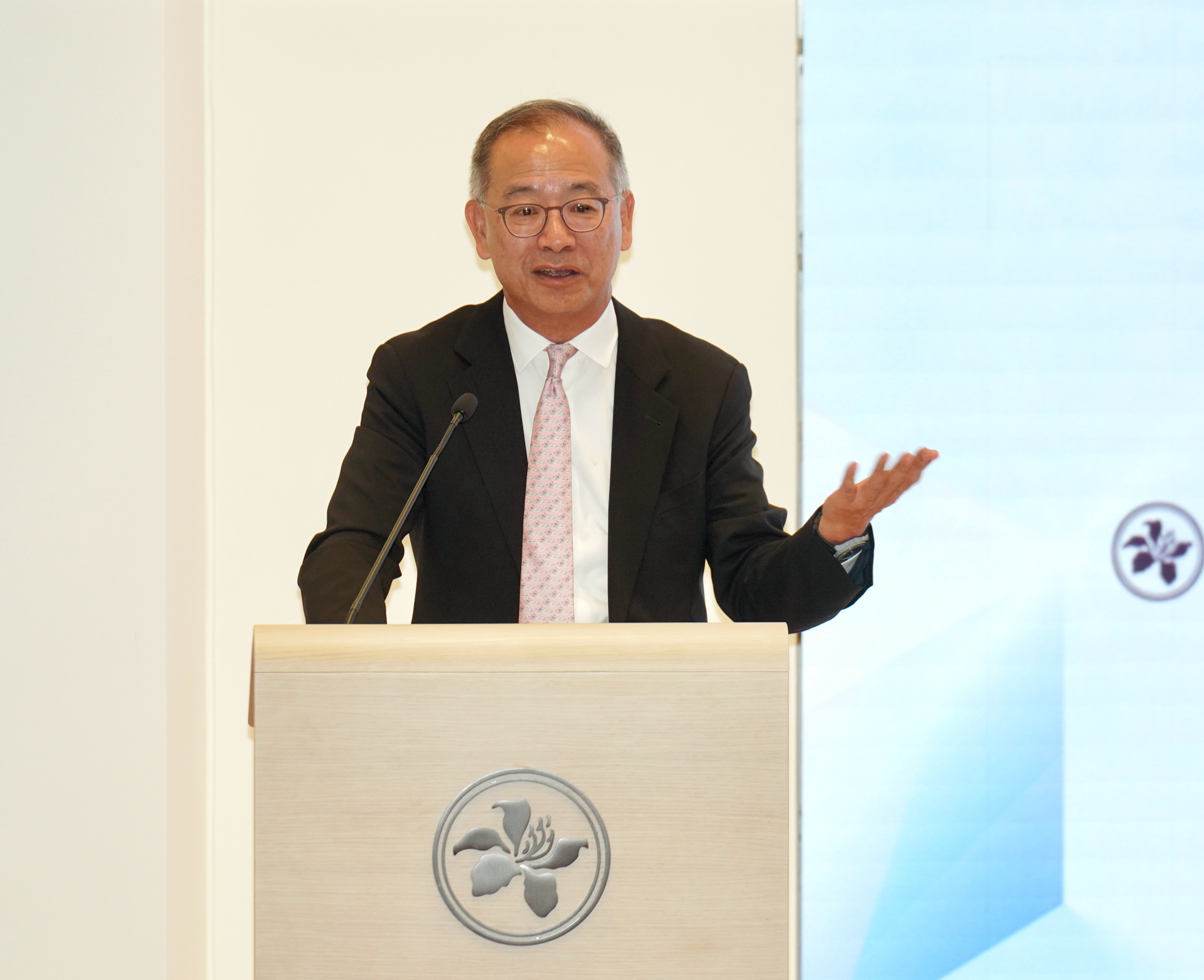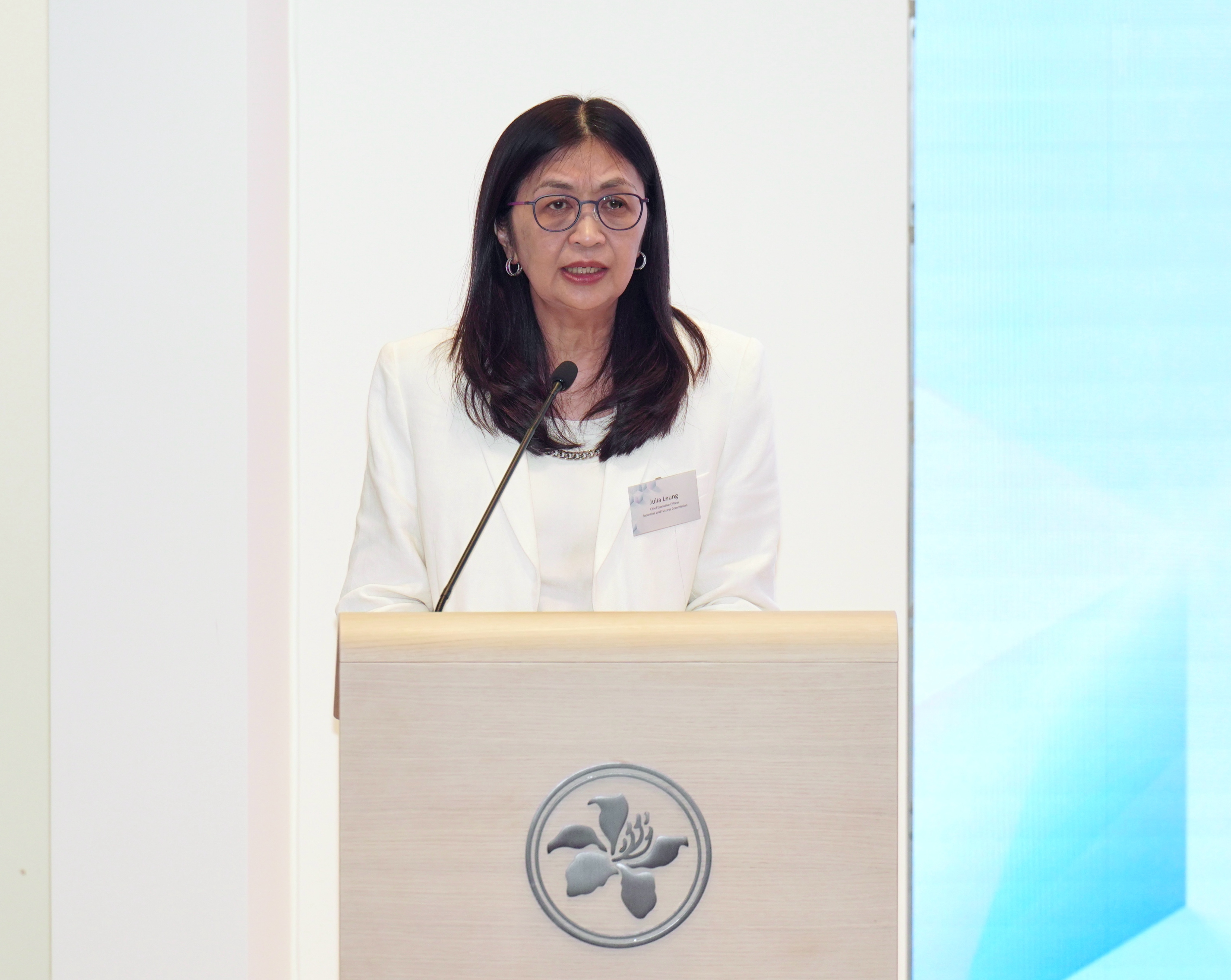
The Hong Kong Monetary Authority on Wednesday launched a new financial market infrastructure, with the aim of testing and refining different use cases of tokenization through blockchain technology.
The Project Ensemble Sandbox is designed to facilitate interbank settlement using experimental tokenized currencies, and it’s also the core of Project Ensemble, which was rolled out in March to explore financial market infrastructure and industry standards applicable to the digital asset market, as well as the support for tokenized deposits.
“The Sandbox is a new financial market infrastructure that facilitates the full life cycle of a tokenized asset transaction: from the creation and trading of tokenized assets, through payment and settlement using tokenized commercial-bank deposits, to final interbank settlement through central bank digital currency issued by the HKMA,” said Eddie Yue Wai-man, chief executive of the HKMA.
The first phase of Sandbox trials will cover the tokenization of both traditional financial assets and real-world assets, concentrating on four key themes — fixed income and investment funds, liquidity management, green and sustainable finance, as well as trade and supply chain finance.
ALSO READ: Hong Kong beefing up status as financial hub
Under the first theme, for instance, the Sandbox is expected to foster technological innovation in the bond and fund markets, as traditional bond issuance or fund trading settlement typically takes two to five business days, while tokenized versions can simplify the trading process and mitigate delays or potential risks with their around-the-clock instant payment and settlement.
Tokenization makes financial transactions more efficient, more transparent, and less costly, and “may indeed represent at least a part of the future financing”, Yue noted.

As for the theme of green and sustainable finance, according to the HKMA, tokenization is conducive to develop the carbon trading market in Hong Kong and strengthen the city’s leading position in green finance, as the transparency and credibility of carbon data can be improved given tokenized carbon credits’ features of decentralization and immutability.
Moreover, by leveraging blockchain technology, electric vehicle charging stations can provide real-time reliable operation data, such as charging volume and revenue, which will help transform Hong Kong into an eco-friendlier and more-livable city.
ALSO READ: Blockchain awaits GBA data interfaces
The initial round of experimentation involves 25 industry participants, including international financial institutions, technology companies, and local startups nurtured by Cyperport and the the Hong Kong Science Park.
Julia Leung Fung-yee, CEO of Hong Kong securities watchdog Securities and Futures Commission, said the financial institutions have proposed “innovative” use cases through the Sandbox, which will “help us identify hurdles, drive a common industry standard, and pilot-test interbank settlement of tokenized asset transactions through tokenized money.”

Among the first batch of participants in the private sector, Ant Digital Technologies, leveraging its blockchain and internet of things technologies, will play its role in recording the real-time operational status of physical assets, and uploading the data to the blockchain. With enhanced transparency, multiple stakeholders are enabled to assess value and manage risk collaboratively, ultimately improving financing efficiency and accessibility.
As a digital payment and financial services company, Ant International will join Standard Chartered Bank (Hong Kong) and The Hongkong and Shanghai Banking Corp to develop a global liquidity management solution that allows banks to connect to and exchange their tokens, which is expected to enable real-time, 24/7 cross-border payments.
READ MORE: Blockchain firms' efforts up to gain global lead
Hang Seng Bank, one of the financial institutions taking part, has conducted two use cases testing through the Sandbox, namely tokenized deposits transfers, and interbank settlement for tokenized electronic bill of lading, according to Nancy Cheng, head of the bank’s partnership and innovation.
The HKMA’s move is in line with a global trend that tokenization in the international market is on a trajectory of growth. McKinsey & Co predicted a $2 trillion market cap for tokenized real-world assets by 2030, and Boston Consulting Group said it expected a cap of $16 trillion.



